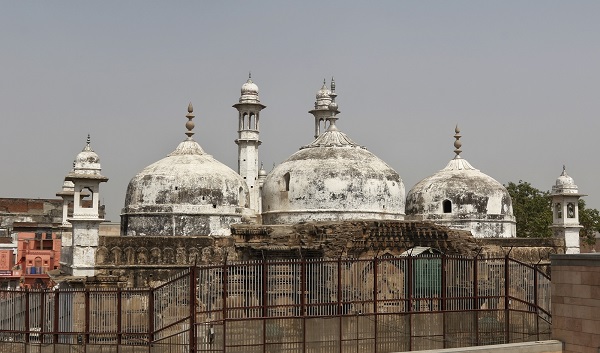Varanasi, (Asian independent) A Varanasi court will hear the maintainability of the civil suit on May 26, and will hear objections of the Muslim side in the Gyanvapi mosque-Shringar Gauri temple dispute. The court will hear the Order 7 Rule 11 application by the Muslim side which seeks to reject the civil suit of the Hindu side.
The Judge has asked for objections to the Court Commissioners survey report from both the sides. The district court has also given seven days’ time to both the sides to file objections to the report of the court-mandated videography of the complex. In the court, the mosque committee, Anjumane Intezamia, has argued that the suit is barred under the Places of Worship Act, the Hindu side that the survey report should be considered by the court.
The mosque committee says that filming at the mosque violates a 1991 law that prevents the alteration of the character of any place of worship in the country. It wanted the ‘maintainability’ case to be heard first, which the court has agreed to.
The Supreme Court had asked the Varanasi court to decide on priority whether the survey at the Gyanvapi mosque and the petition that led to the survey was ‘maintainable’ or not.
“I told the court that it is a mandate of the Supreme Court that our application saying the case is not maintainable should be heard first. I read out my application and also the Supreme Court order. The opposing counsel said he needed more documents and time to file objections to our application, but I said the maintainability must be decided first,” said Abhay Nath Yadav, a lawyer for the mosque committee.
The court also said that both the sides should be given copies of the video survey and one week’s time to file their objections, if any.
Early last week, lawyers representing the Hindu petitioners claimed that a ‘Shivling’ was found during the videography survey of the Gyanvapi mosque-Shringar Gauri complex.
The claim was disputed by the mosque committee members who said it was part of the water fountain mechanism in the wuzu khana reservoir, used by devotees to perform ritual ablutions before offering namaz. The district court had then ordered the sealing of the ‘wuzu khana’.








